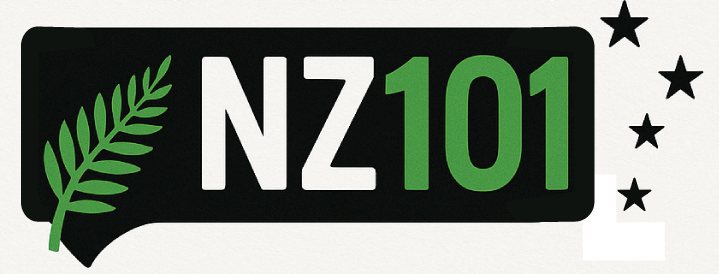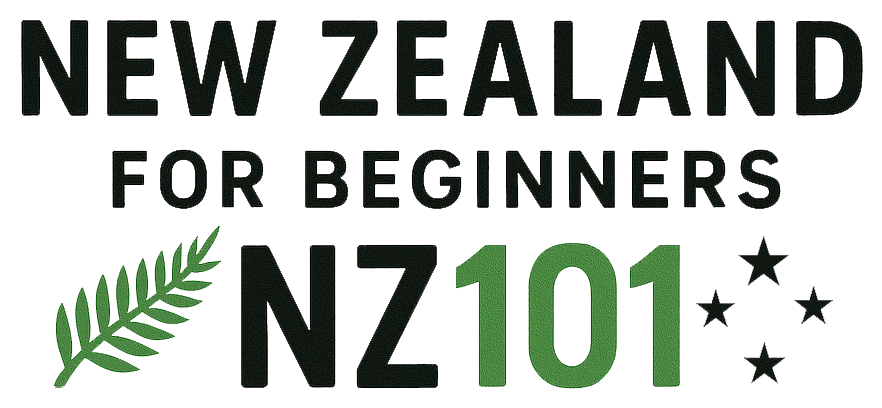New Zealand English is a distinct variety of British English, shaped by a blend of American influences and a strong presence of te reo Māori. It also has a rich collection of slang and colloquial expressions that are uniquely Kiwi.
When I first landed on Kiwi shores, I thought there was something wrong with my hearing, but I soon realised it was the slang that was tripping me up. It still catches me out from time to time.
That’s why I decided to write this blog post, to share some of these wonderfully odd expressions with you.
There are far more than I could possibly cover in one post, but here’s my pick of the most bizarre, funny and head-scratching sayings I come across on a daily basis.
Yeah, nah
‘Yeah, nah’ is a quintessential Kiwi phrase that reflects New Zealanders’ laid-back, agreeable culture. If Kiwis disagree with you, but they don’t want to hurt your feelings, they’ll say ‘Yeah, nah’. It’s not a firm no, but also not a convincing yes.
Most of the time, though, ‘Yeah, nah’ is used as a filler word or a pause in a conversation. When a Kiwi answers your question with ‘Yeah, nah’, no need to ask ‘What do you mean? Yes or no?’ I find that, most of the time, they don’t even realise they’ve said it.
Good-o and scarfies
New Zealanders (and Australians) often add endings like -ie or -o to words. The fancy term for creating new terms this way is hypocorism.
-o
Good-o = an expression of approval
Rightio, righty-o or righto = OK or alright
Do you understand?
Righto.
-ie
One of the first terms my sons taught me was scarfie. It is slang for a university student.
Originally, the term referred to the students at the University of Otago in Dunedin, a city in the South Island known for its chilly winters and notoriously cold and grotty student flats. Woollen scarves are a must down there, and students often wear them in their university’s colours. Over time, this led to the nickname scarfies.
Also, people living in Dunedin are called Dunnies.

So, all scarfies are Dunnies, but not all Dunnies are scarfies 😊
These days, the term scarfies is used to refer to all university students, not just those in Dunedin.
Sweet as, cheap as, anything as
Kiwis love adding ‘as’ to words, and at first, it sounds like they’re about to make a comparison, but they never do. I quickly realised that ‘as’ is just there for emphasis. Think of it as a casual way of saying ‘very’ or ‘super’. When someone says, ‘sweet as’ or ‘cheap as’, that’s it. No need to finish the sentence like ‘sweet as honey’ or ‘cheap as chips’. The meaning is complete, just like that.
Bring a plate
The first time I was invited to a BBQ, I was asked to bring a plate.

Bring a plate? I thought, maybe they’ve invited many people, and the host doesn’t have enough crockery for all the guests.
Nope.
When you’re asked to bring a plate, you’re actually supposed to put something delicious on it to share with the other guests 😊 It is also a good idea to ask the host what you should bring to avoid everyone turning up with chocolate cake.
Jandals
Jandals are probably the most popular piece of footwear worn in New Zealand and are part of its relaxed, laid-back culture. I live in them, rain or shine!

Although jandals are commonly worn in casual settings, some workplaces even accept them in warmer months.
Jandal January is a fun term that refers to the laid-back summer vibe during January, when most people are still in holiday mode and are reluctantly returning to the office.
But not everyone agrees that jandals are acceptable around the office, not even in January, as the article Jandal January: How casual should work attire get? highlights.
What’s in a word? The origin of the term ‘jandals’
I wondered where the name came from, so I did a bit of digging.
The word jandal is unique to New Zealand and dates back to the late 1940s, when a Taranaki man named John Cowie created a plastic and rubber version of the traditional Japanese sandal. He came up with the name by combining Japanese and sandal.
However, it was not until 1957 that Auckland businessman Morris Yock trademarked the term. That’s why you’ll only hear ‘jandals’ in New Zealand. Most countries call them flip-flops, while Australians refer to them as thongs.
Not being able to handle the jandal is a common Kiwi phrase that means being unable to handle a situation.
She’ll be right
The phrase ‘She’ll be right’ is a well-loved expression in New Zealand, meaning ‘Don’t worry, everything will work out’.
Where does the phrase come from?
The origin of the phrase and the use of ‘she’ is not entirely clear. However, considering the British influence during colonial times, it’s easy to see the connection with the long-standing linguistic tradition in English of referring to certain objects, such as ships, countries or even cars, as ‘she’.
So, when a Kiwi says, ‘She’ll be right’, they’re not talking about a woman 😊
Rather, ‘she’ is used in an abstract sense and can refer to anything or anyone—whatever is under discussion. It sounds friendlier and more colloquial than just ‘It will be OK’, and it is very Kiwi.
In The Godzone Dictionary of Favourite New Zealand Words and Phrases (p. 185), the author Max Cryer shares a fun anecdote worth quoting here:
An American Rotary scholar on exchange in New Zealand for a year became the source of legend when she misunderstood the frequently heard statement ‘She’ll be right’ as a local philosophy of optimism expounded by a New Zealander she assumed was called ‘Shelby Wright’.
Box of birds / box of fluffy ducks / box of fluffies

Another classic Kiwi expression is ‘box of birds’, which means feeling great, happy and cheerful.
How are you?
Box of ducks, mate.
The phrase likely comes from the lively image of a box full of chirping, noisy, vibrant birds. It’s a Kiwi way of staying positive, even when things aren’t going their way.
Over time, some variations developed, such as box of fluffy ducks and box of fluffies.
Bro
In New Zealand, ‘bro’ is more than just short for ‘brother’. It’s a term of friendship, solidarity and respect, especially among Māori and Pasifika communities, where it reflects strong cultural values of kinship and connection.
‘Bro’ can be used to greet a friend, show support or express camaraderie, even between people who aren’t blood related.
‘Cheers, bro’ and ‘You all good, bro?’ are ways of saying you’ve got someone’s back.
Bach

A bach (pronounced batch), or a crib when you’re in the South Island, is a small, often modest holiday home, usually near the beach or a lake or in the countryside.
It is believed that the word bach comes from the verb ‘to bach’, which means ‘to live like a bachelor’, or ‘bachelor’, a basic dwelling for single men.
Over time, it became a more sophisticated holiday home where New Zealanders seek to escape during the summer holidays.
Baches are a beloved part of Kiwi culture, and many New Zealanders have fond childhood memories of summers at the bach. At the bach, life slows down and jandals, BBQs and board games take over.
The popularity of baches even inspired the name of the holiday rental platform Bookabach, which resonates with bach-loving Kiwis seeking to recreate a slice of Kiwi summer culture for those who don’t have their own.
Togs
Togs is the Kiwi word for swimwear.
According to Max Cryer, the term is derived from the Latin word toga, while an article published on the Stuff website suggests it likely comes from British English slang.
In the 18th century, ‘togs’ referred to clothes in general.
In the UK, it still means ‘clothes’, but in New Zealand (and also Australia), the term refers only to swimwear.
A Kiwi Conversation
To wrap things up, here’s a classic and completely silly and exaggerated (made-up) conversation between two Kiwis that packs in as much slang as possible.
Hey bro, you keen for a trip to the bach this weekend?
Sweet as, bro! Just gotta find my togs and jandals. Left ’em at the flat last time I went for a dip with the scarfies.
Classic. Weather’s lookin’ dodgy, but she’ll be right.
Yeah, nah, last time you said that we got caught in a hailstorm and the BBQ blew into the neighbour’s yard.
True. Still a box of birds though, eh?
Always. Oh, you reckon I should bring a plate?
Good-o. But like… an actual plate this time, not just one sausage and a Tim Tam.
Oi, that was gourmet. Anyway, I’ll see you there, bro.
Shot, bro. Don’t forget the jandals this time. Last year you wore gumboots to the beach.
Sources used for this blog post
Cryer, M. (2019). The Godzone dictionary of favourite New Zealand words and phrases. Exisle Publishing.
English language in New Zealand: https://teara.govt.nz/en/english-language-in-new-zealand/page-1
Everything you never needed to know about New Zealand summer holidays. (2015, December 27). Stuff. https://www.stuff.co.nz/travel/destinations/nz/75282998/everything-you-never-needed-to-know-about-new-zealand-summer-holidays



Pingback: Weekly Whirl #17 - New Zealand for Beginners